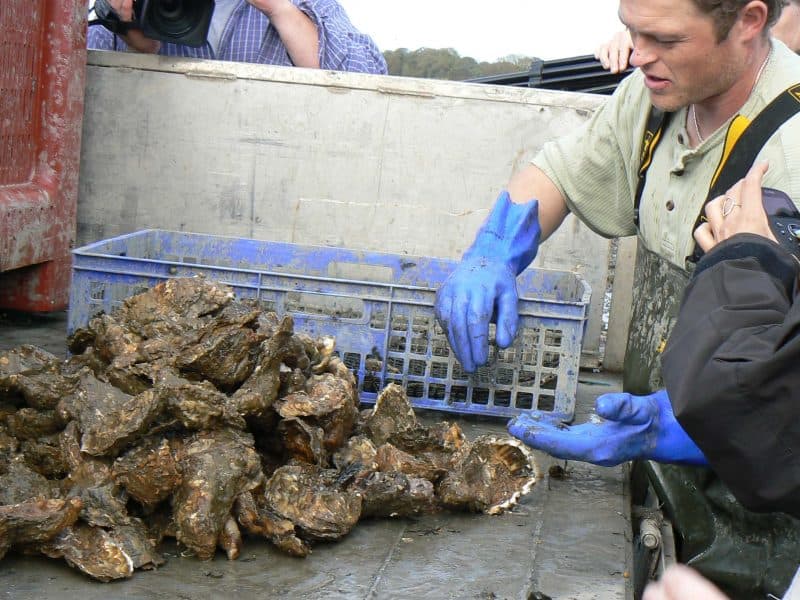Menai Oysters: Harvested by Hand from Pristine Waters

Shaun Krijnen was wearing rubber boots and rubber overalls when we met him. Still, he had that tossled look of a movie star millionaire, and even though was worried about how he looked in front of the visiting journalists, he struck quite a pose in that late afternoon light in front of the Menai straits and his tractor. His smile and easy demeanor told us, this guy has fun and he’s right where he wants to be.
Shaun told us about the oysters and mussels he farms here. He’s been at it for 17 years, and calls himself “the longest serving oyster farmer in Wales.” He studied marine biology at University and has alternated between focusing on the mussels and the oysters, all the while navigating the rocky shores of UK bureaucracy–which dictates so many rules about food safety that it publishes three 700 page tomes to guide future fish farmers in how they should do their age-old jobs.

Despite the paperwork hassles, it’s clear that when he’s out harvesting these beautiful bivalves, he’s doing just what he was meant to do. We took a rollicking ride over the bumpy shore in the back of the trailer towed by his big blue tractor, from the oyster sacks full of tiny little guys to the jumbo varieties who had grown almost too big down the other side of the beach. The water covers the sacks and then goes out, the
tides here extend almost 30 feet. The water is pristine, Wales, we heard, has spent millions to eliminate any sewer outflow and this water is as clean as it can get.
The oysters are bought as tiny seeds from a dealer in England and then as they grow, are moved again and again, so that one bag of babies will turn into twenty big bags of gigantic full grown oysters.
I asked him if he could shuck us a few to slurp down, right there on that beautiful pristine beach, and he winced. No, can’t do that, it’s those regulations you know. He has to immerse them in water and run them through ultraviolet light, so no beach shucking. “But I’d eat them right here, I know they’re safe!” he told us with a smile.
